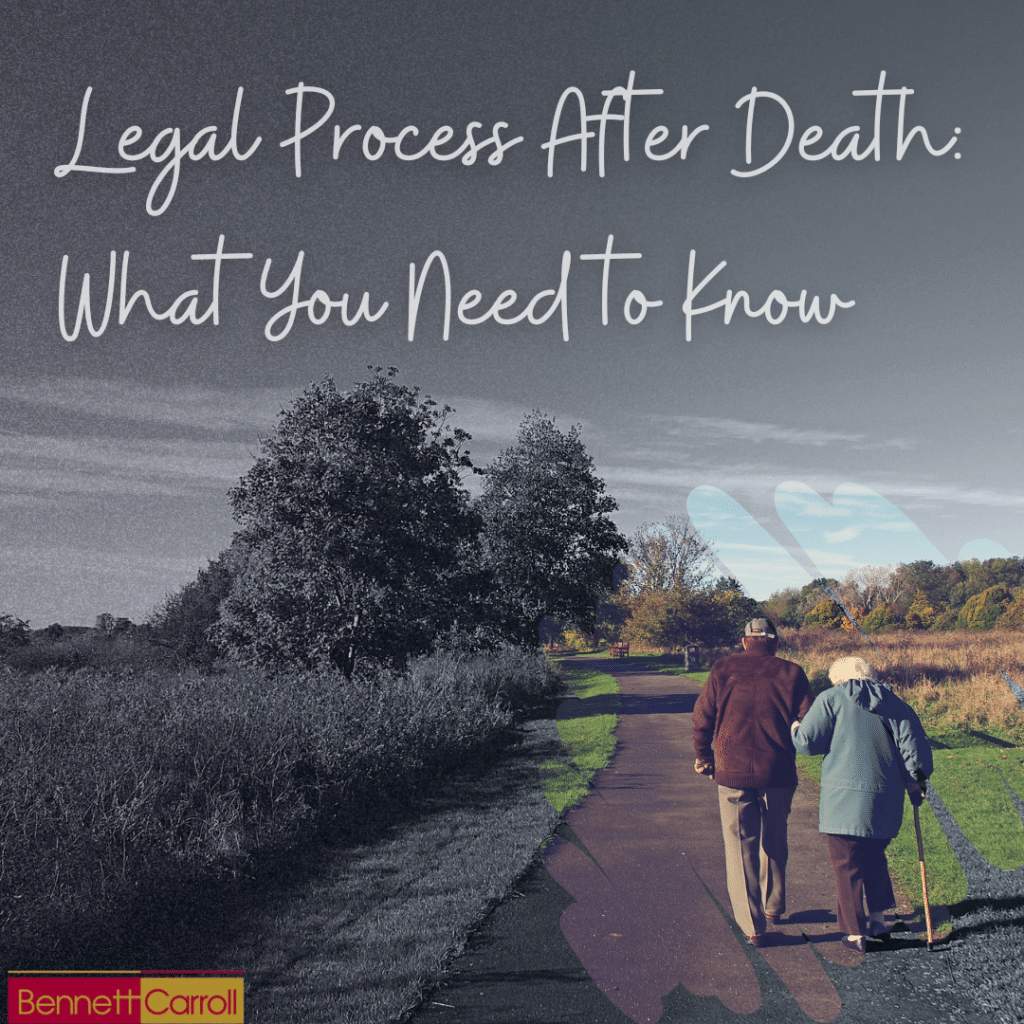Losing a loved one is undoubtedly one of life’s most challenging experiences. Amidst the emotional turmoil, there are also numerous legal obligations that need to be addressed.. Understanding the necessary legal process after death can help ensure a smooth and orderly transition during this difficult time. This article outlines the key legal procedures that individuals need to undertake when a loved one passes away in Queensland.
Confirmation of Death:
The first step is to confirm the death of your loved one. This typically involves contacting a medical professional, such as a doctor or paramedic, who can officially pronounce the person deceased.
Notification of Authorities:
Once the death has been confirmed, it is essential to notify relevant authorities. This includes contacting the local police (if the death occurs at home or in suspicious circumstances), the deceased person’s doctor (if applicable), and the funeral director.
Obtaining a Death Certificate:
A death certificate is a crucial legal document that records the details of a person’s passing. In Queensland, the Registry of Births, Deaths, and Marriages issues death certificates. Family members or the appointed executor can apply for a death certificate online or by mail.
Arranging the Funeral:
Planning the funeral or memorial service is an important aspect of the grieving process. Family members or the executor should work closely with a funeral director to make arrangements for the service, burial, or cremation according to the deceased person’s wishes or cultural customs.
Locating the Will:
If the deceased person had a will, it is essential to locate the original document as soon as possible. The will typically outlines the deceased’s wishes regarding the distribution of their assets, appointment of executors, and any specific funeral instructions. If the will cannot be found, seeking legal advice is crucial to determine the next steps.
What is Probate & When is Probate Needed?
What is probate? Probate is a legal process that validates the deceased’s will and gives the executor the authority to manage the estate. If the deceased person’s estate requires probate, the executor named in the will must apply to the Supreme Court of Queensland for a grant of probate.
When is probate required? Probate is typically necessary when the estate includes significant assets, such as property, shares, or substantial savings. The process involves submitting the will and other required documents to the court for validation.
Applying for Probate (If Necessary):
If the deceased person’s estate requires probate, the executor named in the will must apply to the Supreme Court of Queensland for a grant of probate. Probate is necessary when the estate includes significant assets, such as property, shares, or substantial savings. The probate process involves submitting the will and other required documents to the court for validation.
Notifying Financial Institutions and Government Agencies:
The executor or next of kin should notify relevant financial institutions, government agencies, and service providers of the person’s passing. This includes banks, insurance companies, the Australian Taxation Office (ATO), Centrelink (if the deceased was receiving benefits), and superannuation funds. It is crucial to cancel any services or subscriptions in the deceased’s name to avoid unnecessary charges.
Download Our Free Who to Notify Checklist
Handling notifications after a loved one’s passing can be overwhelming. To simplify this process, we’ve created a Who to Notify Checklist. Download it here to ensure you don’t miss any important steps.
Settling Debts and Distributing Assets:
Once probate has been granted (if required) and all assets and liabilities have been identified, the executor can begin the process of settling debts and distributing assets to beneficiaries according to the terms of the will (or Queensland intestacy laws if there is no will). This may involve selling property, closing accounts, and transferring ownership of assets.
Finalising Affairs and Estate Administration:
After all debts have been settled and assets distributed, the executor must finalize the estate administration process. This includes:
- Preparing final tax returns for the deceased person
- Obtaining clearance from the Australian Taxation Office (ATO)
- Closing the estate bank account
❗Executors can be held personally liable for errors in estate administration. Our team can help you navigate the legal requirements to ensure compliance.
FAQs About the Legal Process After Death in Queensland
What happens if there is no will?
If there is no will, the estate is distributed according to Queensland’s intestacy laws, which determine the rightful heirs. A family member may need to apply for Letters of Administration to manage the estate.
How long does probate take in Queensland?
The probate process typically takes 6-12 weeks, but delays can occur if the will is contested or if there are complications with the estate.
What are the costs of probate and estate administration?
The costs depend on the complexity of the estate, but they include court fees, legal fees, and potential taxation liabilities.
Why Choose Bennett Carroll Solicitors for Probate and Estate Administration?
✅ Expert legal advice on probate & estate administration
✅ Quick turnaround times for applications
✅ Assistance with disputes and complex estates
✅ Peace of mind knowing the legal process is handled correctly
Don’t navigate probate alone. Let our legal experts handle the paperwork and ensure a smooth estate process!
By following these essential legal procedures, individuals can navigate the legal process after death with care, diligence, and peace of mind. Seeking guidance from legal professionals, such as Bennett Carroll Solicitors, ensures that all legal obligations are met in accordance with Queensland law.
For further guidance and support, consider reaching out to legal professionals, such as Bennett Carroll Solicitors. Remember, you don’t have to face these tasks alone; seeking assistance can provide valuable support and ensure that all legal obligations are met in accordance with Queensland law. As you navigate these processes with care, diligence, and peace of mind, may you find solace in knowing you have taken the necessary steps to honor your loved one’s wishes and legacy.
We have offices across Queensland in Brisbane, Gold Coast, Sunshine Coast & Ipswich and offer both face to face appointments or online if you prefer.
See also:
Advantages of Testamentary Trusts- Will & Estate Legal Advice
Navigating Executor Misconduct and Estate Disputes: Your Legal Rights in Queensland









